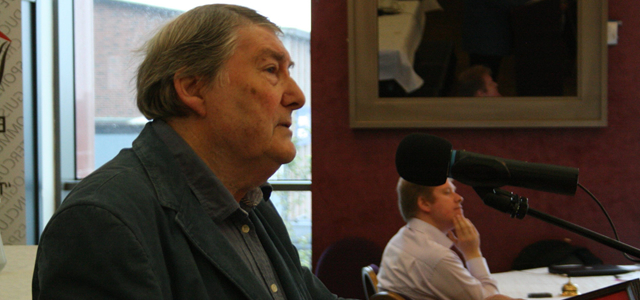
We are all now, media personnel and citizens, residing in the 21st century and living with the ‘digital revolution’. However, it won’t be much of a revolution if it continues to restrict dialogue and undermine democracy.
The restriction is occurring through media mergers where a shrinking ownership base controls content in a conservative manner. Some of us in community media believe that there is an ideological war being waged in Irish media. It’s largely between the models of public service and commercial media. We in community media are currently operating under the radar. From the safety of our position I’d like to make a few observations.
In a democracy having a diversity of voices and viewpoints is a healthy situation, the state should use the proposed Universal Media Charge wisely to ensure that such heterogeneity is protected and nurtured. Both RTÉ and the community media, the not for profit sectors, are the media spaces where citizens at national and very local levels can gain access and self-representation, protecting and promoting media plurality.
Ongoing media mergers are a continuing threat to democracy which the government refuses to address. The Minister in protecting the public interest should ensure that in tandem with a controlled merging of private media, we witness a burgeoning of communal media to counter balance the restrictive debate that this merging will inevitably produce.
The core issue is about preserving a plurality of media ownerships and content, retaining a rich diversity of voices and opinions. This is more than a concern about media oligopolies, it is more about the message or messages, the reality that will be presented to listeners and viewers to these commercial Irish media and a concern that inevitably the worldview of their owners will prevail.
There should be a statutory definition of media plurality (referring both to ownership and content) and crucially the important role of the media in a democracy should be recognised by Statute. The role of the media in democracy is pivotal and must be protected and underpinned by appropriate legislative measures.
I think the future of public service broadcasting can best be preserved by aligning RTÉ with the growing network of community media in a reciprocal development of both. We believe that RTÉ Public Service Media and Community Media between them can provide all citizens who wish it, with their right to communicate, each playing to their strengths in a pattern of mutual support. For instance, public service media can learn from the campaigning stance of community media to provide a public service version.
RTÉ has to work through its Public Service Broadcasting Charter which opens with: “RTÉ, as the national public service broadcaster, shall reflect the democratic, social and cultural values of Irish society and the need to preserve media pluralism. RTÉ shall, at all times, strive to reflect fairly and equally the regional, cultural and political diversity of Ireland and its peoples.” This is a heavy remit and is difficult to provide to every individual citizen, but notice in geographical terms it refers to ‘regional’ obligations. This leaves room for closer to home, community radio to cover the last mile into villages and urban neighbourhoods.
And community media also has a legal obligation. The 2009 Broadcasting Act asserts that community media, alone of the three media sectors, must provide a ‘social benefit’ to its community. Commercial radio and TV has no such legal obligations placed on them, other than their license commitments.
Some of us have more imaginative plans for communications technology. For us community media opens up the possibility of more voices being heard not less. Of a rich tapestry of autonomous communally owned resources where people can identify with the general interests of their community. It is about a community being more inclusive, about the appropriation of the medium by more women, youth, the traveller community, minority groups, immigrants and the rest of the inhabitants of any settled geographic community or community of interest.
Already with over twenty community radio stations scattered across the country, clear lines of action are emerging, such as: contributing to the development of the area, broadening democracy, defending human rights, promoting media literacy and protecting cultural diversity. We need very soon to appear on the radar screen.
Jack is the founder and Secretary of Craol the Irish Community Radio Network, and former chairperson, Near Media Co-op and Near FM.

